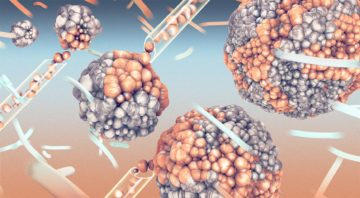Liam Drew in Nature:
 It’s 2036, and you have kidney failure. Until recently, this condition meant months or years of gruelling dialysis, while you hoped that a suitable donor would emerge to provide you with replacement kidneys. Today, thanks to a new technology, you’re going to grow your own. A technician collects a small sample of your blood or skin and takes it to a laboratory. There, the cells it contains are separated out, cultured and treated with various drugs. The procedure transforms the cells into induced pluripotent stem (iPS) cells, which, like the cells of an early embryo, are capable of generating any of the body’s tissues. Next, the technician selects a pig embryo that has been engineered to lack a gene required to grow kidneys, and injects your iPS cells into it. This embryo is implanted in a surrogate sow, where it develops into a young pig that has two kidneys consisting of your human cells. Eventually, these kidneys are transplanted into your body, massively extending your life expectancy.
It’s 2036, and you have kidney failure. Until recently, this condition meant months or years of gruelling dialysis, while you hoped that a suitable donor would emerge to provide you with replacement kidneys. Today, thanks to a new technology, you’re going to grow your own. A technician collects a small sample of your blood or skin and takes it to a laboratory. There, the cells it contains are separated out, cultured and treated with various drugs. The procedure transforms the cells into induced pluripotent stem (iPS) cells, which, like the cells of an early embryo, are capable of generating any of the body’s tissues. Next, the technician selects a pig embryo that has been engineered to lack a gene required to grow kidneys, and injects your iPS cells into it. This embryo is implanted in a surrogate sow, where it develops into a young pig that has two kidneys consisting of your human cells. Eventually, these kidneys are transplanted into your body, massively extending your life expectancy.
This hypothetical pig is a chimaera: an animal composed of cells derived from more than one fertilized egg. The name comes from the part-lion, part-goat, part-serpent chimaera of ancient mythology. And, right now, a small number of scientists are working to make the above kidney scenario a reality.
More here.
